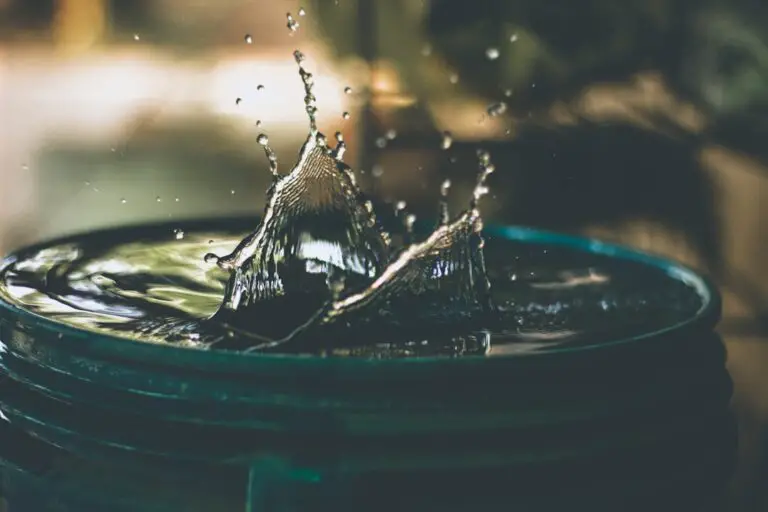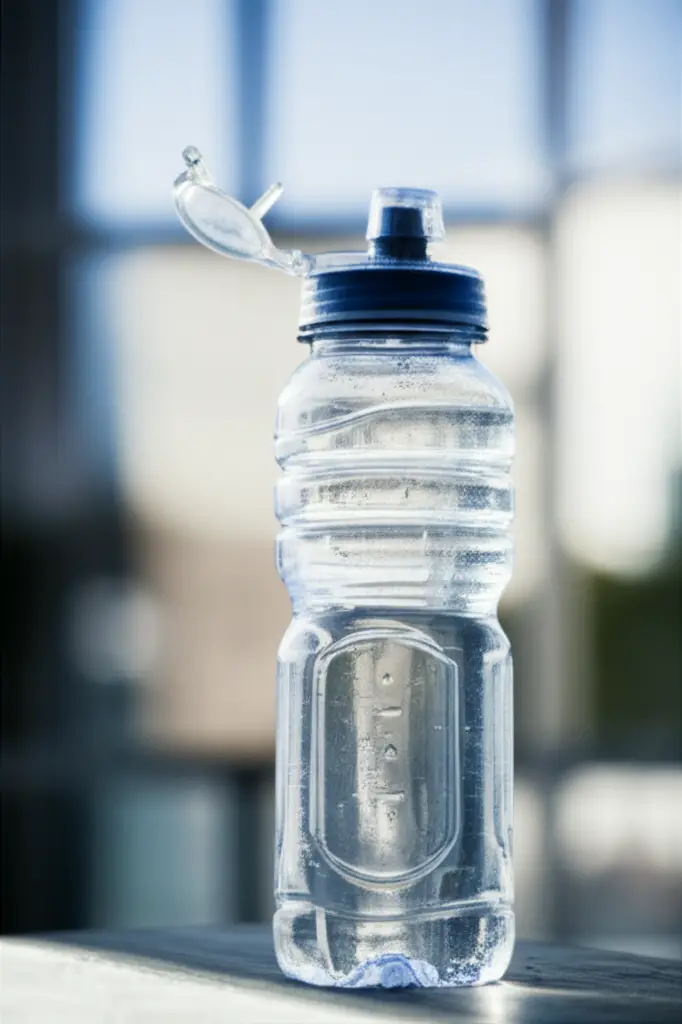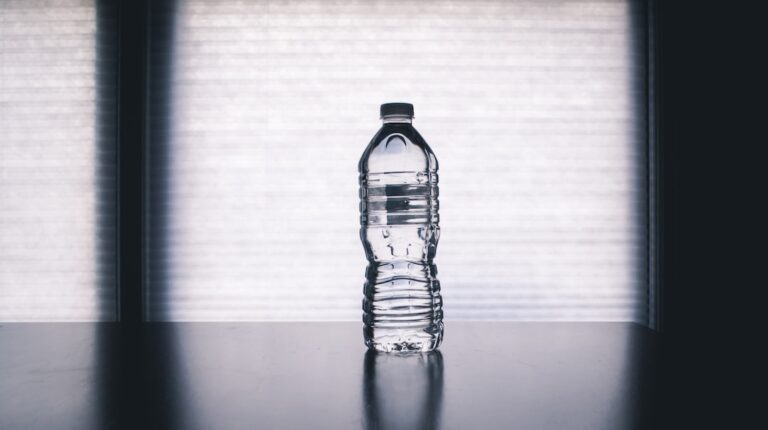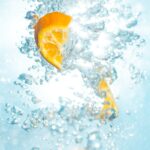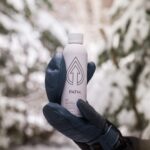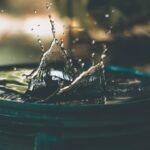Support our educational content for free when you purchase through links on our site. Learn more
Why Does Drinking Water Make Me Feel More Thirsty? 💧 (2025)
Ever gulped down a big glass of water only to find yourself even thirstier moments later? You’re not alone — this frustrating paradox has puzzled hydration enthusiasts and casual sippers alike. At Water Brands™, we’ve uncovered the surprising science behind why drinking water can sometimes increase your thirst instead of quenching it. From electrolyte imbalances to the type of water you choose, and even hidden health conditions, this article dives deep into every angle of the mystery.
Stick around as we reveal expert tips on how to truly satisfy your thirst, the best water brands to try, and when persistent thirst might be a red flag for your health. Plus, learn why gulping might be sabotaging your hydration efforts and how sipping smarter can make all the difference!
Key Takeaways
- Drinking water too quickly or without electrolytes can dilute your blood’s mineral balance, triggering more thirst.
- Natural mineral and spring waters often hydrate better than highly purified waters stripped of electrolytes.
- Underlying conditions like diabetes, dry mouth, or anemia can cause persistent thirst despite drinking water.
- Sipping water slowly and replenishing electrolytes helps your body absorb fluids more effectively.
- If thirst is excessive and unexplained, consult a healthcare professional to rule out medical issues.
Ready to upgrade your hydration game? Check out our top recommended electrolyte-enhanced drinks and mineral waters to quench your thirst the right way!
👉 Shop hydration essentials: Mineral Water | Natural Spring Water | Enhanced Water
Table of Contents
- ⚡️ Quick Tips and Facts
- 💧 The Curious Case of Thirst: A Brief Dive into Our Body’s Hydration Signals
- 🤔 Why Does Drinking Water Sometimes Make Me Feel MORE Thirsty?
- 🔍 Unmasking the Real Thirst Culprits: Underlying Conditions & Factors
- 1. Is It Dehydration? Unmasking the Real Thirst Culprit
- 2. The Sweet & Sour Truth: How Diabetes Can Fuel Your Thirst
- 3. Beyond the Sweetness: Understanding Diabetes Insipidus and Your Unquenchable Thirst
- 4. The Cotton Mouth Conundrum: When Dry Mouth Makes You Crave More Water
- 5. Feeling Drained? Anemia’s Link to Persistent Thirst
- 6. Too Much of a Good Thing? Hypercalcemia and Your Body’s Thirst Signals
- 7. Bumping Up the H2O: Navigating Excessive Thirst During Pregnancy
- 8. Electrolyte Imbalance: The Hidden Thirst Trigger
- 9. Medications and Your Thirst: A Surprising Connection
- 10. Lifestyle Factors: Diet, Exercise, and Your Hydration Needs
- 💧 The Quality of Your Water: Does It Matter for Thirst?
- 🧠 The Psychology of Thirst: Mind Over Matter?
- ✅ Quenching the Quenchless: Effective Strategies to Satisfy Your Thirst
- 🚨 When Thirst Becomes a Red Flag: Knowing When to Seek Expert Advice
- 💡 The Thirst-Quenching Takeaways: Your Hydration Action Plan
- ❓ Your Thirst Questions Answered: FAQs from Our Experts
- 📝 Conclusion
- 🔗 Recommended Links
- 📚 Reference Links
Here at Water Brands™, we’ve swirled, sipped, and savored more water than you can shake a divining rod at. We’re obsessed with hydration. But we’ve all been there: you chug a glass of water, expecting sweet, thirst-quenching relief, only to find yourself… thirstier? 🤔 What gives?! It feels like a cruel joke from Mother Nature. Is your body betraying you? Is the water itself the culprit?
Well, grab your favorite reusable bottle, because we’re about to take a deep dive into the paradoxical world of post-sip thirst. We’ll explore the science, the sneaky underlying causes, and most importantly, how to actually quench that unquenchable thirst. Let’s get to the bottom of this liquid conundrum!
⚡️ Quick Tips and Facts
In a rush? Here’s the short version of why you might be reaching for another glass right after the first one.
- ✅ Sip, Don’t Gulp: Chugging water can flush your system too quickly, taking essential electrolytes with it. Slow, steady sipping is the way to go.
- 🧂 It’s About Balance: True hydration isn’t just about water; it’s about water and electrolytes (like sodium, potassium, and magnesium). If you’re low on electrolytes, plain water can sometimes dilute what you have left, triggering more thirst.
- ❌ Not All Water is Created Equal: Some highly Purified Water lacks the natural minerals that help your body absorb H2O effectively. We’ll get into the nitty-gritty of which water brands that make you more thirsty might be the culprits later.
- 🩺 Underlying Conditions: Persistent, excessive thirst (the fancy medical term is polydipsia) can be a sign of health issues like diabetes or anemia. As the Cleveland Clinic notes, “if you constantly feel thirsty even after drinking a lot of fluids, you may have a more serious health condition.”
- 👄 Dry Mouth Isn’t Thirst: Sometimes, what feels like thirst is actually dry mouth (xerostomia), which can be caused by medications, breathing through your mouth, or certain health conditions.
- 💧 Thirst = Already Dehydrated: A key takeaway from health experts is, “If you’re thirsty, that’s a sign you’re already dehydrated.” The goal is to drink before you feel that desperate craving.
💧 The Curious Case of Thirst: A Brief Dive into Our Body’s Hydration Signals
Before we tackle the paradox, let’s talk about what thirst actually is. Think of it as your body’s super-smart, built-in notification system. It’s not just a feeling in your throat; it’s a complex process orchestrated by your brain.
Your brain’s hypothalamus is the command center for hydration. It constantly monitors the concentration of your blood. When you lose water (through sweat, breathing, or going to the bathroom), your blood becomes more concentrated with stuff like sodium. This change in concentration, or osmolality, is the trigger. The hypothalamus detects this and sends out the “HEY, DRINK SOMETHING!” alert, which you experience as thirst. It’s a brilliant defense mechanism designed to maintain the delicate fluid balance your cells need to function.
🤔 Why Does Drinking Water Sometimes Make Me Feel MORE Thirsty?
Alright, here’s the main event. You drink water, the very thing your body is screaming for, yet the thirst alarm keeps blaring. What’s happening? It often comes down to two key factors: science and speed.
The Science Behind the Paradox: Osmolality and Electrolyte Balance
Remember osmolality? It’s all about balance. Your body doesn’t just want water; it wants water with the right amount of dissolved minerals and electrolytes.
Imagine this: You’ve been sweating a lot, losing both water and salt. You then drink a large amount of plain, demineralized water. This fresh water rushes into your bloodstream, rapidly diluting the remaining sodium. Your brain’s sensors detect this sudden drop in concentration and panic slightly. They think, “Whoa, the sodium is too low now! We need more electrolytes to balance this out!” This can, paradoxically, trigger a thirst signal, encouraging you to seek out sources of those missing minerals.
Your body is essentially saying, “Thanks for the water, but you forgot the good stuff! Go find some electrolytes!”
The “Too Much, Too Fast” Phenomenon: Gulping vs. Sipping
Our lead taste tester, Dave, learned this the hard way while training for a half-marathon. He’d finish a long run, feel utterly parched, and chug an entire bottle of water in 30 seconds. “I thought I was doing the right thing,” he told us, “but five minutes later, I’d be even thirstier than before, and I’d have to pee like a racehorse!”
Dave’s mistake? Gulping. When you drink a large volume of water very quickly, it doesn’t have much time to be absorbed. It can overwhelm your stomach and kidneys. Your kidneys, seeing this sudden flood, work overtime to expel the excess liquid, flushing out water and valuable electrolytes in the process. The result? You’re left feeling bloated, still thirsty, and running for the nearest restroom.
The takeaway: Sipping allows your body to absorb the water more gradually and efficiently, leading to better hydration and a more satisfied thirst.
🔍 Unmasking the Real Thirst Culprits: Underlying Conditions & Factors
If your thirst feels constant and is never satisfied no matter how much you sip, it might be more than just an electrolyte imbalance. As WebMD points out, “if you continue to feel thirsty even after drinking water, it might be a symptom of a health condition.” Let’s play detective and look at some of the most common culprits.
1. Is It Dehydration? Unmasking the Real Thirst Culprit
This is the most obvious suspect! Dehydration happens when your body loses more fluid than it takes in. Thirst is the number one symptom, but it’s not the only one.
| Signs of Dehydration |
|---|
| Urine the color of dark apple juice 🍎 |
| Not needing to urinate very often |
| Dry, sticky mouth or skin |
| Feeling tired, dizzy, or lightheaded |
| Headaches |
Causes: The usual suspects are exercise, being in hot weather, or illnesses that cause vomiting or diarrhea.
2. The Sweet & Sour Truth: How Diabetes Can Fuel Your Thirst
Excessive thirst, along with frequent urination, is a classic hallmark of undiagnosed Type 2 diabetes. Here’s why: with diabetes, your body can’t process sugar (glucose) properly, causing it to build up in your blood. Your kidneys go into overdrive to filter out this excess sugar. As the Cleveland Clinic explains, this process pulls extra water along with the sugar into your urine, leading to more frequent bathroom trips, dehydration, and a powerful thirst signal.
3. Beyond the Sweetness: Understanding Diabetes Insipidus and Your Unquenchable Thirst
This condition sounds similar to the one above, but it’s completely unrelated to blood sugar. Diabetes Insipidus is a rare disorder that affects your body’s water balance. It’s caused by issues with a hormone called antidiuretic hormone (ADH), which tells your kidneys to conserve water. When ADH isn’t working correctly, your kidneys release way too much fluid, leading to extreme thirst and the need to urinate huge volumes.
4. The Cotton Mouth Conundrum: When Dry Mouth Makes You Crave More Water
Sometimes the problem isn’t your body’s water balance, but a lack of saliva. This condition, called xerostomia, can make your mouth feel dry, sticky, and uncomfortable, which you might interpret as thirst. It can be a side effect of hundreds of medications (like antidepressants and blood pressure meds), treatments like chemotherapy, or conditions like Sjögren’s syndrome.
5. Feeling Drained? Anemia’s Link to Persistent Thirst
Anemia means you don’t have enough healthy red blood cells to carry adequate oxygen throughout your body. In cases of severe or sudden anemia (like after heavy bleeding), your body might try to compensate for the loss of fluid volume by triggering intense thirst. Other symptoms include fatigue, dizziness, and pale skin.
6. Too Much of a Good Thing? Hypercalcemia and Your Body’s Thirst Signals
Hypercalcemia is a condition where you have too much calcium in your blood. This can be caused by overactive parathyroid glands, certain types of cancer, or even taking too much supplemental vitamin D. High calcium levels can interfere with your kidneys’ ability to concentrate urine, leading to—you guessed it—more urination and more thirst.
7. Bumping Up the H2O: Navigating Excessive Thirst During Pregnancy
Feeling extra thirsty during pregnancy is very common and usually normal. Your blood volume increases significantly to support the baby, which requires more fluid intake. However, it can sometimes be a sign of gestational diabetes, so it’s always something to mention to your doctor.
8. Electrolyte Imbalance: The Hidden Thirst Trigger
As we discussed, this is a big one! You can lose electrolytes through sweat, illness, or even by drinking too much plain water. When they’re out of whack, your body’s hydration signals can go haywire. This is why athletes often reach for sports drinks and why doctors recommend electrolyte solutions for dehydration from illness.
9. Medications and Your Thirst: A Surprising Connection
Your medicine cabinet could be the source of your thirst. Diuretics (often called “water pills”) are designed to make you urinate more to lower blood pressure. Other culprits mentioned by health experts include lithium, certain antipsychotics, and SGLT2 inhibitors for diabetes. They can either cause dehydration or simply the sensation of a dry mouth.
10. Lifestyle Factors: Diet, Exercise, and Your Hydration Needs
This one’s on us!
- Salty or Spicy Foods: Your body needs to dilute the excess sodium from that bag of chips, so it pulls water from your cells and screams for more H2O.
- Alcohol & Caffeine: These are diuretics, meaning they make you pee more, leading to dehydration. That’s why a “hair of the dog” is a terrible idea for a hangover!
- Exercise: You sweat, you lose fluids, you get thirsty. Simple as that.
For a deeper dive into some of these causes and potential remedies, the first YouTube video embedded in this article, titled “Excessive Thirst Causes and Remedies – Dr.Berg”, offers some great visual explanations and tips.
💧 The Quality of Your Water: Does It Matter for Thirst?
You bet it does! Here at Water Brands™, this is our bread and butter. The composition of your water can absolutely affect how well it hydrates you.
- Purified Water: Water that has been treated with processes like reverse osmosis or distillation is incredibly pure. However, these processes strip out nearly everything—including the beneficial minerals and electrolytes your body uses for absorption. Brands like Dasani and Aquafina fall into this category. While perfectly safe, some people find they don’t quench thirst as effectively as other types.
- Natural Spring Water: This water comes from an underground source and naturally contains a blend of minerals like calcium and magnesium. Brands like Evian and Fiji Water are popular examples. These minerals can help your body absorb the water more readily.
- Mineral Water: This is the powerhouse of hydration. Sourced from protected underground springs, Mineral Water is defined by its consistent and high level of dissolved minerals. Brands like Gerolsteiner or San Pellegrino have a distinct taste due to their high mineral content and can be fantastic for replenishing electrolytes and satisfying a deep thirst.
- Enhanced Water: These are waters that have had electrolytes, vitamins, or flavorings added back in. Think Smartwater (vapor-distilled with added electrolytes) or Glaceau Vitaminwater. They aim to bridge the gap between pure water and a sports drink.
The bottom line: If you consistently feel thirsty after drinking water, try switching from a purified brand to a Natural Spring Water or Mineral Water to see if the added electrolytes make a difference.
🧠 The Psychology of Thirst: Mind Over Matter?
In some rare cases, the urge to drink isn’t physiological at all. Psychogenic polydipsia is a psychological condition where a person feels a compulsive need to drink large amounts of water, even when not dehydrated. It’s often associated with certain mental health conditions and requires professional medical guidance. This is different from simply enjoying water; it’s an overwhelming and persistent urge that can even lead to dangerously low sodium levels (hyponatremia).
✅ Quenching the Quenchless: Effective Strategies to Satisfy Your Thirst
Feeling empowered with all this knowledge? Good! Now let’s turn that knowledge into action. Here are our team’s top-tested strategies for truly quenching your thirst.
Sip Smart, Not Gulp Hard: The Art of Mindful Hydration
We can’t stress this enough. Get yourself a good reusable water bottle (Hydro Flask and Stanley are team favorites) and keep it with you. Take small, frequent sips throughout the day. This keeps your body consistently hydrated without overwhelming your system. Aim for clear or pale-yellow urine—that’s the sweet spot!
Electrolyte-Rich Options: Beyond Plain Water
When you’re really dehydrated from a tough workout, a hot day, or a bout of illness, plain water might not cut it. You need to replenish those lost electrolytes.
- Electrolyte Powders: These are incredibly convenient. Just mix a packet into your water for an instant hydration boost. They are formulated with a precise ratio of sodium, potassium, and glucose to help your body absorb water faster.
- Coconut Water: Nature’s sports drink! It’s naturally rich in potassium and has a touch of sodium and natural sugars.
- A Pinch of Sea Salt: In a pinch, adding a tiny pinch of high-quality sea salt (like Celtic Sea Salt) and a squeeze of lemon to your water can provide a small electrolyte boost.
Here are some excellent electrolyte-rich products our team recommends:
- Liquid I.V. Hydration Multiplier: A fan favorite for its effectiveness and great taste.
- 👉 CHECK PRICE on: Amazon | Walmart | Liquid I.V. Official Website
- Pedialyte: Don’t let the “for kids” marketing fool you. This is a medical-grade hydration solution that works wonders for adults, too.
- Vita Coco Coconut Water: A great natural option when you want something less formulated.
Food for Thought: Hydrating Foods That Help
Don’t forget you can eat your water, too! Many fruits and vegetables are packed with water and can contribute significantly to your hydration.
| Hydrating Food | Approximate Water Content |
|---|---|
| Cucumber 🥒 | 96% |
| Celery | 95% |
| Watermelon 🍉 | 92% |
| Strawberries 🍓 | 91% |
| Cantaloupe 🍈 | 90% |
🚨 When Thirst Becomes a Red Flag: Knowing When to Seek Expert Advice
We’re experts in water, but we’re not doctors. While most thirst is just your body’s normal signal, it’s crucial to know when it might be something more. As the experts at WebMD advise, “See a doctor if you have excessive thirst that doesn’t go away even after you hydrate.”
You should definitely book an appointment if your excessive thirst is:
- Persistent: It lasts for days or weeks, no matter how much you drink.
- Unexplained: It’s not linked to obvious causes like a new medication, intense exercise, or hot weather.
- Accompanied by other symptoms: Especially frequent urination, unexplained weight loss, extreme fatigue, or blurred vision.
Don’t ignore what your body is telling you. “Whatever the cause, don’t just live with it. Most of the conditions that cause thirst are treatable.”
💡 The Thirst-Quenching Takeaways: Your Hydration Action Plan
Feeling a little water-logged with all this info? Let’s boil it down to a simple action plan.
- Assess Your Thirst: Is it normal thirst from activity, or is it persistent and excessive?
- Hydrate Mindfully: Ditch the gulping. Sip water consistently throughout the day.
- Check Your Water Type: If you’re drinking highly purified water, try switching to a Mineral Water or Natural Spring Water to see if the natural electrolytes help.
- Balance with Electrolytes: After intense sweating or illness, replenish with an electrolyte drink or hydrating foods.
- Listen to Your Body: If your thirst feels abnormal and is paired with other symptoms, don’t hesitate to consult a healthcare professional.
❓ Your Thirst Questions Answered: FAQs from Our Experts
We get a lot of questions about thirst. Here are answers to some of the most common ones, based on our research and expert consensus.
Q: What am I lacking if I’m always thirsty?
A: Most likely, you’re lacking sufficient fluid. However, if drinking water doesn’t help, you could be lacking electrolytes like sodium and potassium, which are crucial for your body to actually absorb and use the water you’re drinking.
Q: Why am I always dehydrated even when I drink a lot of water?
A: This is a classic sign that something else is going on. You could be losing fluid as fast as you’re drinking it, which can happen with untreated health conditions like diabetes. It could also mean you’re not getting enough electrolytes, so the water is passing right through you.
Q: What illness causes constant dehydration?
A: Several conditions can lead to this, with the most common being diabetes mellitus and diabetes insipidus. Others include kidney issues, anemia, and hypercalcemia.
Q: What causes excessive thirst at night?
A: This can be due to simple things like not drinking enough during the day, eating a salty dinner, drinking alcohol before bed, or even breathing through your mouth while you sleep. If it’s a consistent problem, it’s worth investigating further.
📝 Conclusion
So, why does drinking water sometimes make you feel more thirsty? It turns out, the answer lies in a delicate dance of electrolyte balance, hydration pace, and sometimes, underlying health conditions. Drinking plain water too quickly or without replenishing lost minerals can confuse your body’s thirst signals, leading to that frustrating sensation of thirst that just won’t quit.
Our Water Brands™ team encourages you to sip mindfully, choose waters rich in natural minerals like Mineral Water or Natural Spring Water, and consider electrolyte-enhanced options when appropriate. And if your thirst feels relentless or unusual, don’t hesitate to seek medical advice — it could be your body’s way of signaling something more serious.
Remember Dave, our taste tester? After switching from gulping purified water to sipping mineral-rich water and adding electrolyte powders post-run, his thirst finally felt satisfied. No more chasing the elusive quench!
Hydration is an art and a science. With the right knowledge and habits, you can master it and keep that thirst at bay. Cheers to smarter sipping and happier hydration! 💧🥂
🔗 Recommended Links
Looking to upgrade your hydration game? Here are some of our top picks to help you quench your thirst the right way:
-
Liquid I.V. Hydration Multiplier:
Amazon | Walmart | Liquid I.V. Official Website -
Hydro Flask Reusable Water Bottles:
Amazon | Hydro Flask Official Website -
Stanley Adventure Water Bottles:
Amazon | Stanley Official Website -
Books on Hydration and Health:
“Your Body’s Many Cries for Water” by Dr. F. Batmanghelidj — Amazon
“Waterlogged: The Serious Problem of Overhydration in Endurance Sports” by Dr. Tim Noakes — Amazon
❓ FAQ: Your Thirst Questions Answered by Water Brands™ Experts
Why do I feel thirsty even after drinking water?
Feeling thirsty after drinking water can happen if your body’s electrolyte levels are imbalanced. When you drink plain water rapidly, especially after sweating or illness, it can dilute sodium and other electrolytes in your blood. Your brain senses this dilution and triggers thirst to encourage you to restore the balance. Additionally, if you have an underlying condition like diabetes or dry mouth, your thirst may persist despite hydration. Drinking water slowly and including electrolyte-rich fluids or foods can help alleviate this sensation.
Can drinking water sometimes increase thirst?
Yes! Drinking large amounts of water too quickly can cause your kidneys to flush out excess fluid and electrolytes rapidly. This can leave your body temporarily depleted of minerals it needs to maintain fluid balance, paradoxically increasing thirst. Also, if you’re drinking highly purified water that lacks minerals, your body might crave more fluids to compensate for the missing electrolytes. The key is to sip water gradually and consider mineral or electrolyte-enhanced waters.
What causes dry mouth despite drinking water?
Dry mouth, or xerostomia, is caused by reduced saliva production, which is different from dehydration. It can be a side effect of medications (like antidepressants or antihistamines), medical treatments (such as chemotherapy), or conditions like Sjögren’s syndrome. Even if you drink water, the lack of saliva can make your mouth feel dry and uncomfortable, which you might mistake for thirst. If dry mouth persists, consult your healthcare provider for evaluation and management.
How does hydration affect thirst signals in the body?
Hydration status directly influences thirst signals through osmolality—the concentration of solutes like sodium in your blood. When you’re dehydrated, blood osmolality rises, triggering the hypothalamus to induce thirst. Drinking water lowers osmolality, signaling the brain to reduce thirst. However, if you drink water too fast or without electrolytes, osmolality can drop too low, confusing the brain and potentially triggering thirst again. Proper hydration balances water intake with electrolyte replenishment, ensuring accurate thirst signaling.
What are some lifestyle changes to reduce excessive thirst?
- Eat balanced meals: Avoid excessive salty or spicy foods that increase thirst.
- Limit diuretics: Reduce alcohol and caffeine intake, which promote fluid loss.
- Stay hydrated consistently: Sip water throughout the day instead of large gulps.
- Choose mineral-rich waters: Opt for natural spring or mineral water over purified water.
- Monitor medications: Some drugs can cause dry mouth or dehydration; discuss alternatives with your doctor if needed.
When should I see a doctor about my thirst?
If your thirst is persistent, excessive, or accompanied by symptoms like frequent urination, fatigue, unexplained weight loss, or blurred vision, it’s important to seek medical advice. These can be signs of conditions such as diabetes, kidney problems, or hormonal imbalances that require diagnosis and treatment.
📚 Reference Links
For further reading and verification, check out these reputable sources:
- Why Am I Always Thirsty? — Cleveland Clinic
- Polydipsia (Excessive Thirst) — Cleveland Clinic
- Why Am I Always Thirsty? — WebMD
- Liquid I.V. Official Website
- Hydro Flask Official Website
- Stanley Official Website
- Evian Natural Spring Water
- Fiji Water
- Gerolsteiner Mineral Water
- San Pellegrino Mineral Water
Stay hydrated, stay curious, and remember: your body’s thirst is a conversation—listen closely, sip wisely! 💧✨


